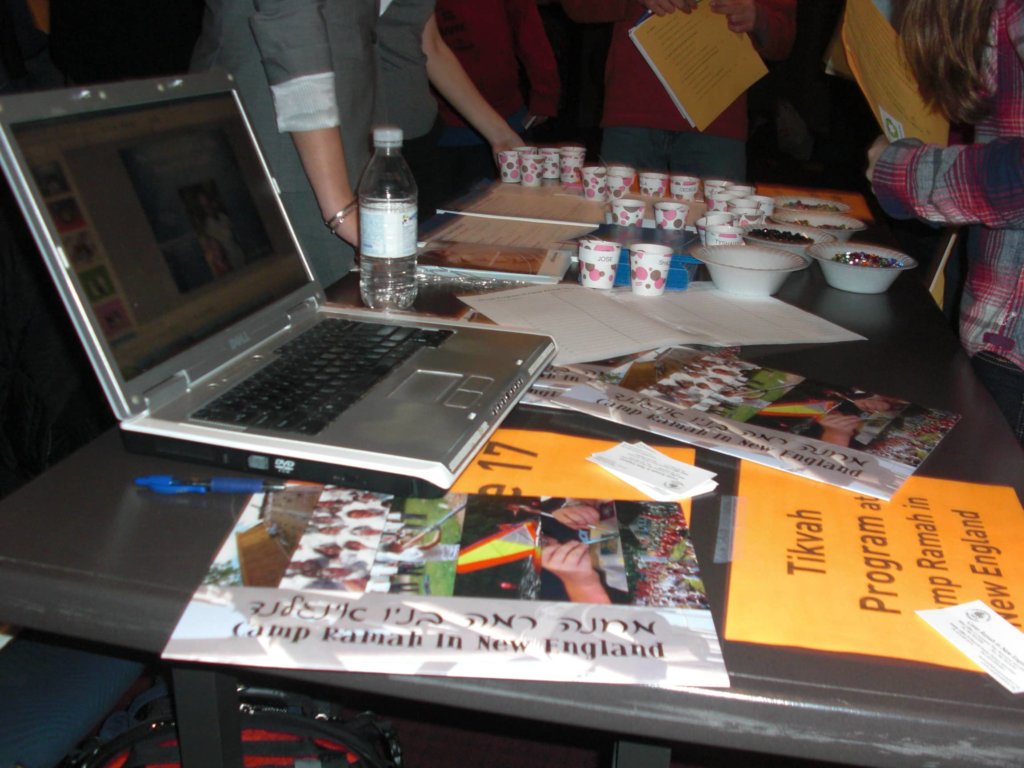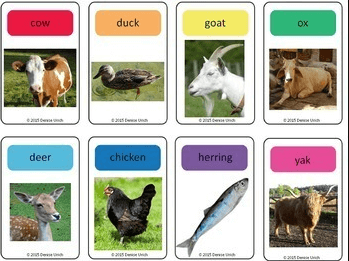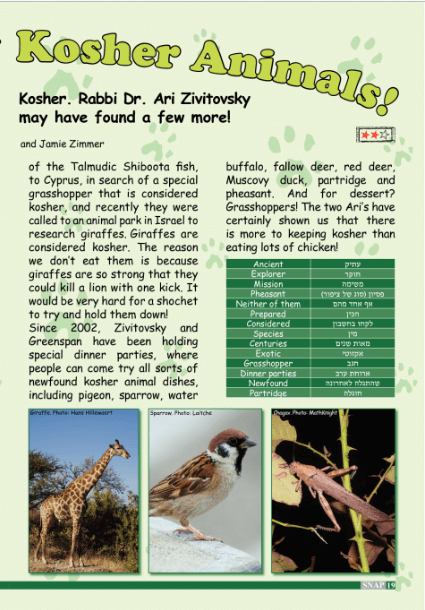Like it or not, this is the season of giving and receiving gifts. We are thinking about gifts we will give to our children, their teachers, our co-workers, family members, even our letter carriers. We may even think about gifts for ourselves! There is always the hope that we will receive as well as give.
I have been thinking a lot about gifts lately. This past Thursday, I participated in a Mitzvah Fair at Congregation B’nai Jeshurun (BJ). It was attended by 70 fifth, sixth and seventh grade students, as well as by their parents and teachers (including our own Jason Fruitlandler!). The truth is, I participate in a number of ‘fairs’ during the off season – but they are usually camp fairs, where people learn about camp programs for children with special needs.
This fair was different. Over a 90 minute period, B’nai Jeshurun Hebrew school students would visit 18 different tables in a “round robin format”, where they would hear a three or four minute presentations from various organizations, including Hazon, the Peres Center for Peace, From Table to Table, Soaring Words, and Give a Mitzvah, Do a Mitzvah (a UJA-Federation of New York program), etc. The truth is, I didn’t get to visit all of the tables, as I was speaking about our own Tikvah Program.
Before the round robin began, students sat in small circles with their teachers, learning about Tikun Olam, the Jewish concept of “Repairing the World”. As I spoke about the Tikvah Program, I remembered a conversation I had recently with a Tikvah parents. I had been telling her the idea I had come up with, where BJ students would plan and participate in several social activities throughout the year with New York-based members of our Tikvah Program. My vision was for three or four BJ students, three or four Tikvah campers, and two or three Tikvah counselors (or friends of Tikvah) who attend college in Manhattan to jointly plan and participate in such activities as bowling, arts and crafts, holiday celebration, etc. I wanted to continue into the ‘off season’ the very meaningful social and Jewish experience that our Tikvah campers have in the summer. This mother was enthusiastic and supportive, but she wanted to make sure her daughter was not simply the recipient of the kindness of the BJ students. She was absolutely right!
And here is where gifts come in. As I explained to the BJ students, we all have unique gifts. By working with our Tikvah campers, they would be giving, and also receiving. Our Tikvah campers would be receiving, but also giving.
At Ramah, we see campers in other edot giving to Tikvah – by helping friends in motorized scooters navigate the rocky terrain, by socializing with them at various camp activities, or by asking guests to bring art supplies or musical instruments to their bnei mitzvah. The Tikvah Program has received some wonderful donations to the program, thanks to the kindness of fellow campers who thought of their Tikvah friends as they celebrated bnai mitzvah. Tikvah campers have also received a great deal through our various buddy programs, which include Bogrim Buddies and Machon Helpers.
And, Tikvah campers have given so much – to each other, to campers in other edot, and even to staff members. So many of us can picture Eva and others pushing fellow Tikvah camper, Sarah’s, wheelchair. Tikvah campers have spoken on panels during chinuch about having special needs. And Tikvah campers have participated on competitive sports teams and lead Friday night camp wide Shabbat services; through their involvement on sports teams and through serving as prayer leaders, they have shown their fellow campers that we each have strengths as well as weaknesses. We even had a Tikvah staff member who, as a camper, was tutored for his bar mitzvah by a Tikvah camper with particularly good synagogue skills. What a true gift!
I am touched by BJ’s including me and Tikvah in their mitzvah fair. I will need to remind the BJ organizers and volunteers that a mitzvah/tikkun olam project clearly goes both ways. Givers receive and recipients give!








